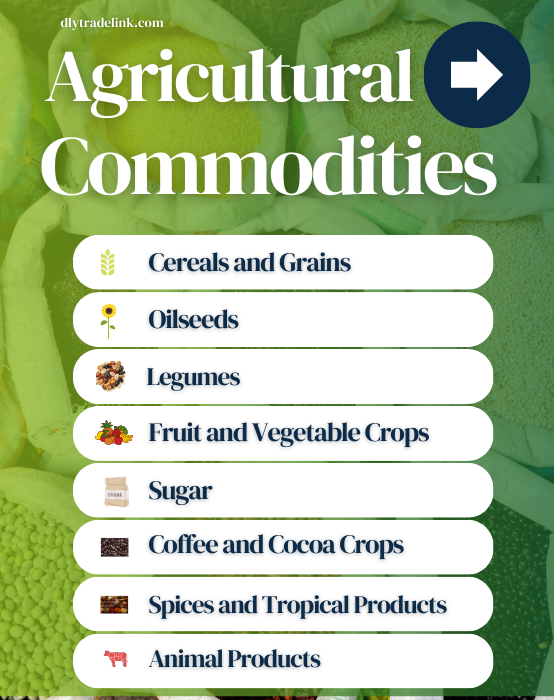A Deep Dive into Production and Processing
Argentina, known as the “granary of the world,” boasts a prominent production of wheat and flour, being a significant player in both the global and domestic markets. This South American country not only meets domestic demand but also exports a substantial portion of its production, thus contributing to both the national and global economies. Let’s explore in detail Argentina’s participation in the global flour and wheat market, its domestic consumption, exports, as well as the main industries using flour as a raw material, along with different blends and the technical specifications of Argentine flour.
Production and Market Participation
Argentina is one of the world’s leading producers of wheat. With vast expanses of fertile land and favorable climate, the country can cultivate large quantities of high-quality wheat. According to data from the United States Department of Agriculture (USDA), Argentina ranks among the top ten wheat exporters globally, competing with nations like the United States, Russia, and Canada.
Regarding flour production, Argentina has a robust milling industry that transforms a significant portion of its wheat harvest into flour. Argentine milling companies are known for their advanced technology and capacity to produce quality flour that meets international standards.
Domestic Consumption and Exports
Domestically, the consumption of flour and wheat-derived products is high. Flour is a staple ingredient in the Argentine diet, used in the production of a wide variety of foods, from bread and pasta to cakes and cookies. Per capita flour consumption in Argentina is significant, reflecting the importance of this product in the daily diet of Argentinians.
In addition to domestic consumption, Argentina exports a considerable portion of its flour and wheat production. Key destinations for Argentine exports include South American countries like Brazil and Chile, as well as nations on other continents such as the United States, Europe, and Asia. The quality of Argentine wheat, coupled with the efficiency of its production chain, enables successful competition in international markets.
Argentina’s Position in the International Market
Argentina, a major global wheat producer, also has a notable presence in the international wheat flour market. In 2022, Argentina exported a total of 422,629 tons of wheat flour, valued at $196,729 thousand USD. While Argentina ranks eighth in terms of export value, its share of global wheat flour exports is 3%, indicating the country’s significant role in the international market.
Industries Utilizing Flour as a Raw Material
In Argentina, various industries rely on flour as a raw material for their products. Among the main industries are:
- Bakery and Pastry: The bakery and pastry industry is one of the largest consumers of flour in Argentina. Artisan bakeries, as well as large baking chains, use large quantities of flour for making bread, pastries, cakes, and other baked goods.
- Pasta and Noodles: The pasta and noodle industry is another important sector that uses flour as a primary ingredient. Argentina is known for its tradition of producing high-quality pasta, and wheat flour is essential in the production of these products.
- Processed Foods: Numerous processed foods, such as biscuits, breakfast cereals, and snacks, contain flour as one of their main components. Argentine food companies use wheat flour in the manufacture of a wide range of products for both local consumption and export.
Blends and Technical Specifications of Argentine Flour
Flour produced in Argentina is classified based on its protein content and gluten strength, which determine its suitability for different uses. The main classifications include 000, 0000, and wholemeal flour, each with specific characteristics.
- 000 Flour: This flour has moderate protein content and is suitable for most bakery and pastry applications, including bread, pastries, and cakes.
- 0000 Flour: With higher protein content and greater gluten strength, 0000 flour is ideal for the production of pasta and noodles, as well as baked products requiring greater structure and elasticity.
- Wholemeal Flour: This flour is obtained by grinding the whole wheat grain, making it rich in fiber and nutrients. It is suitable for the production of wholemeal bread and baked goods, offering additional health benefits.
Origin and Production
- Origin: Argentina, one of the leading producers and exporters of wheat globally.
- Producing Regions: The main wheat-producing regions in Argentina include the Humid Pampas, Buenos Aires Province, Córdoba, Santa Fe, Entre Ríos, and La Pampa.
- Climate and Soil: The temperate climate and quality soils of these regions are ideal for wheat cultivation.
Wheat Characteristics
- Varieties: Argentina produces a variety of wheat, including hard wheat, soft wheat, and improver wheat.
- Quality: Argentine wheat is characterized by its high quality, with protein levels suitable for the production of quality baking flour.
- Cultivation Process: Argentine wheat is grown using modern and sustainable agricultural practices, ensuring quality and food safety.
Milling Process and Flour Production
- Mills: Argentina has modern mills equipped with state-of-the-art technology for wheat milling.
- Milling Process: Argentine wheat is ground using milling processes that preserve its nutritional and organoleptic properties.
- Flour Production: The flour produced from Argentine wheat meets the highest quality standards and is suitable for the production of a wide variety of baked products.
Nutritional Composition
- Nutritional Value: Argentine wheat flour is rich in carbohydrates, proteins, B vitamins, and minerals such as iron and zinc.
- Health Benefits: Argentine wheat flour is an important component of a balanced diet and can contribute to cardiovascular and digestive health.
In summary, wheat production and flour processing in Argentina play a crucial role both domestically and internationally. With a strong milling industry, significant domestic consumption, and exports to multiple destinations worldwide, Argentina stands out as one of the main players in the global flour and wheat market. Additionally, the various industries depending on flour as a raw material contribute to the dynamism and diversification of the Argentine economy.
#TrigoExportación, #HarinaParaExportar, #AgriculturaArgentina, #ExportaciónDeCereales, #CalidadAlimentaria, #ProductosArgentinos, #MercadoInternacional, #AgroExportaciones, #IndustriaHarinera, #CalidadPremium, #CultivoSostenible, #ArgentinaExporta, #ComercioExterior, #HarinaDeCalidad, #TrigoArgentino, #Cosecha2024, #AlimentosSaludables, #GraneroDelMundo, #EconomíaGlobal, #ExportacionesAgropecuarias, #WheatExports, #FlourForExport, #ArgentinianAgriculture, #CerealExports, #FoodQuality, #ArgentinianProducts, #InternationalMarket, #AgroExports, #FlourIndustry, #PremiumQuality, #SustainableFarming, #ArgentinaExports, #ForeignTrade, #QualityFlour, #ArgentinianWheat, #Harvest2024, #HealthyFoods, #GranaryOfTheWorld, #GlobalEconomy, #AgroExports,






